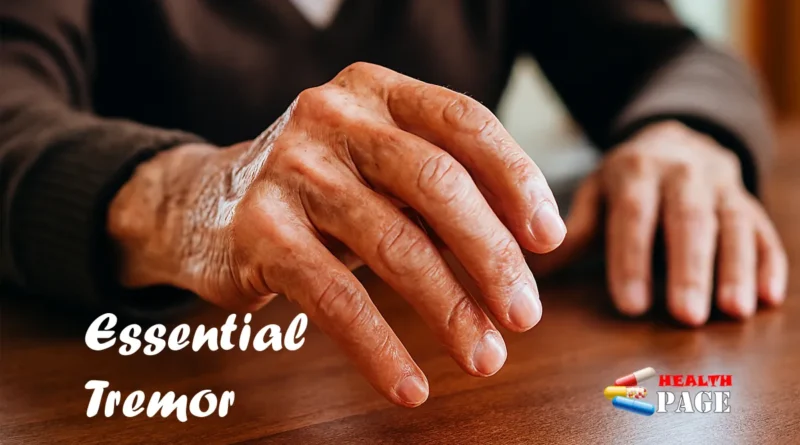How should one take care of themselves if they have essential tremor?
In daily life, it is necessary to have regular check-ups and pay attention to psychological counseling to observe the condition in a timely manner and slow down the progression of the essential tremor disease.
Essential tremor is a common neurological condition that causes involuntary, rhythmic shaking—most often in the hands. It can also affect the head, voice, legs, or trunk, making everyday tasks like writing, eating, or holding objects more difficult.
Unlike Parkinson’s disease, essential tremor typically worsens with movement rather than at rest. The condition usually begins gradually and may initially affect only one side of the body. Over time, the tremors can become more pronounced and widespread.
Essential tremor affects people of all ages but is most prevalent in individuals over 40. While the exact cause remains unclear, genetics play a significant role—about 50% of cases are inherited. Stress, fatigue, caffeine, and temperature extremes can exacerbate symptoms.
Although essential tremor is not life-threatening, it can significantly impact quality of life. Treatments include medications like beta-blockers and anticonvulsants, lifestyle adjustments, and in severe cases, surgical options such as deep brain stimulation.
Early recognition and management of essential tremor are crucial for maintaining independence and daily function. Understanding its symptoms and triggers helps individuals take proactive steps toward symptom control and improved well-being.
What are some things to keep in mind in daily life?
- How to monitor the essential tremor condition and schedule follow-up examinations?
- Observe the condition: As the disease progresses, patients and their families should pay close attention to the condition. In particular, family members should frequently check whether the patient’s symptoms worsen or whether new tremors appear in any part of the body. If the symptoms worsen, medical attention should be sought immediately.
- Follow-up examination: This disease is a chronic disease, and the treatment cycle is generally quite long. Patients and their families must strictly follow the doctor’s instructions for medication and have regular outpatient follow-up visits so that the doctor can understand the treatment effect and disease progress. Follow-up examinations mainly involve the doctor asking about medical history and conducting physical examinations. If necessary, blood routine tests, liver and kidney function tests, etc., may be arranged.
How should you plan your diet?
Avoid caffeine, as it can worsen tremors. Maintain a healthy, balanced diet.
Is psychological counseling necessary?
Yes.
Does it affect my sex life? Does it affect my fertility?
- Sexual activity: Possibly.
- Childbirth: No.
How to exercise?
Regular aerobic exercise can improve patients’ physical and mental well-being, such as brisk walking, Tai Chi, and swimming.
What other precautions should be taken?
- Managing emotions effectively: Emotional excitement, stress, and anxiety can worsen tremors. Relaxation can reduce tremors. While it’s impossible to completely eliminate stress in life, it’s possible to learn relaxation techniques to cope with stress, such as massage or meditation, which can help patients relax and reduce stress.
- Maintain a reasonable lifestyle: go to bed early and get up early, get enough sleep, improve sleep quality, ensure sufficient physical energy, and avoid staying up late.
- Post-operative precautions for deep brain stimulation (DBS): DBS relies on a battery within the neurostimulator for normal operation. For non-rechargeable neurostimulators, battery life varies from person to person and generally requires replacement every 2-5 years, depending on usage. For rechargeable neurostimulators, battery life is generally 9 years.
- Family care: As the disease progresses, patients will rely on the support of family members or professional caregivers, who will assist the patient with daily life.
- Home appliances: For patients writing, eating, and using home appliances, it is recommended to enhance home safety to reduce the possibility of falls. For example, remove loose carpets and clutter, ensure all cords are neatly stored, and purchase some special devices (pens, mice, spoon stabilizers) to help patients eat, write, etc.
- Driving: If the patient needs to drive or engages in driving work, they should be tested to confirm that it is safe to continue driving.
- Career choices: The tremors worsen when concentrating or performing fine motor activities, so it is recommended to avoid working in fields such as handicrafts and fine arts.



Pingback: Back Fatigue Relief: A Simple Yoga Pose to Ease Tension and Restore Energy